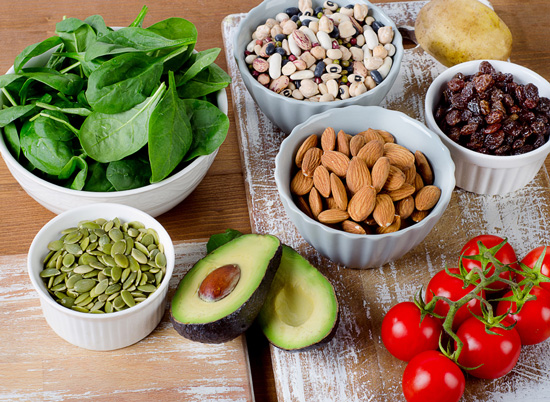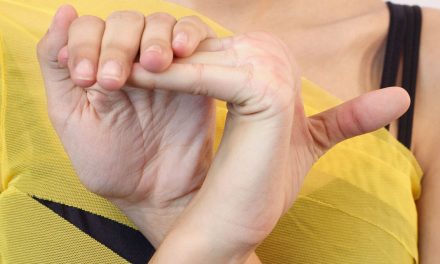What is the paleo diet?
Vegetables and meats are the basis of this diet copied from the caveman.
The Paleolithic diet, alias paleo, is based on the diet that existed in the Stone Age, a period called “Paleolithic.” During that time, men consumed only what was provided by nature, fruits, animal meat, and vegetables.
According to adherents of this type of diet, it is very beneficial for health because the human body is not designed for the consumption of the entire range of foods that you can get today (dairy, cereals, and legumes), this being the reason for the epidemic of diseases that have appeared in recent years.
Allowed foods
The paleo diet allows only the consumption of natural and whole foods, unprocessed and healthy foods that existed during the Paleolithic stage.
Although it may seem incredible, the food selection is very varied and can be combined according to your tastes:
Healthy oils and fats: coconut oil, extra virgin olive oil, animal fat, lard.
Spices and salt: sea salt, turmeric, pepper, garlic, rosemary.
Seeds and nuts: pumpkin seeds, hazelnuts, walnuts, and almonds.
Tubers: turnips, sweet potatoes, and potatoes.
Vegetables: cucumbers, tomatoes, broccoli, onions, kale, and carrots.
Fruit: blueberries, strawberries, grapes, avocados, bananas, pears, apples, and oranges.
Seafood and fish: tuna, mussels, sardines, salmon, prawns, and trout.
Meat: lamb, pork, beef, turkey, and chicken.All those who do not want to continue a strict paleo diet are allowed moderate consumption of bacon, some gluten-free cereals, and butter. Likewise, the consumption of small amounts of dark chocolate and red wine is possible.
Forbidden food
The paleo diet does not advise consuming “modern” foods as it is the supposed cause of today’s diseases, such as cardiovascular disease or diabetes.
For those as mentioned above, the consumption of:
Processed food: any artificial product made in a factory.
Trans fat.
Sugars: fruit juices, candies, ice cream, soft drinks.
Cereals and derivatives: pasta, bread, barley, spelled, rye and wheat.
Refined vegetable oils: sunflower, soy, grape seed, canola oil.
Legumes: beans, lentils, chickpeas.
Dairy products: yogurt, cheese, and especially low-fat dairy.
Artificial sweeteners: acesulfame-k, aspartame, sucralose, cyclamate, and saccharin.You should always read the ingredient list of everything you buy, as it is the only way to avoid consuming these harmful and harmful foods for your health.
Drinks allowed
Without a doubt, the reference drink is water.
For caffeine fans, coffee and tea should not be included in the paleo diet, but their consumption is widespread, and most people ignore this rule and consume them.
The paleo diet advises against consuming more than three meals a day, but if hunger lurks between meals, you can have fruit, hard-boiled eggs, a handful of nuts, or even the leftovers from the previous dinner.
The Paleo diet
As you can guess from its name, the Paleo diet sits on the mainstays of food made in the Paleolithic. It promises to lose 3 kilos in 10 days based on eating lean meats, fish, eggs, organic dairy, fruits, vegetables, nuts, and seeds, and the grain (wheat, rice, corn, oats) is excluded.
Regarding the drawbacks, according to a study by Australian scientists, the paleo diet can hurt heart health and lead to other long-term chronic diseases because it excludes carbohydrates from whole grains from the menu, which influences to have a lower number of beneficial bacteria in the stomach.
The vinegar diet
“The results showed that, with the daily intake of 30 ml of apple cider vinegar, about 150 grams per week could be lost, which is insignificant, far from losing 5 kilos in 3 days predicted by some followers of this practice,” explains the nutritionist clinic of the IMEO Carmen Escalada.
It is an aggressive diet based on a study conducted in Japan 10 years ago that attributed the loss of body weight “to the effect of acetic acid in vinegar on lipid metabolism.” Celebrities such as Miranda Kerr or Victoria Beckham have endorsed this method, which is risk-free. It can aggravate hidden or undetected diseases, such as diabetes, ulcer, gastritis, or osteoporosis.
The Powder Diet
They promise to lose 4 kilos in a week and are based on adding powders with diet products in soups, tortillas, pasta, sauces, etc. They are products, in general, excessively expensive, which makes it difficult to continue with this diet for a long time.
“Protein supplements, common in this type of diet, previously could only be purchased under the prescription of an endocrinologist or nutritionist; now they can be bought without a prescription in street stores and online,” says IMEO nutritionist Andrea Marqués.
Taken without supervision, these powders can impoverish our diet and displace the consumption of fruits, vegetables, and quality proteins and produce a deficit of nutrients in the body.
Surely you are tired of seeing it on social networks: an influencer recommending a diet and even advised to carry it out. You have to be careful with them since many probably do not have a degree in dietician or nutritionist.
“They embark on the world of nutrition and sports, transferring advice that they do not practice without a camera in front of them, inciting the follower through skillful marketing proposals to consume natural or slimming products that, in many cases, are not so healthy or whose benefits are not demonstrable, constituting a double-edged sword for professionals who also work on these platforms, “they indicate from IMO.
To avoid falling into the influencer’s networks, IMEO they give several recommendations:
That it has a collegiate number
That the first consultations be in person
That the diet is personalized
That they do not sell you products that have not passed the corresponding health controls




